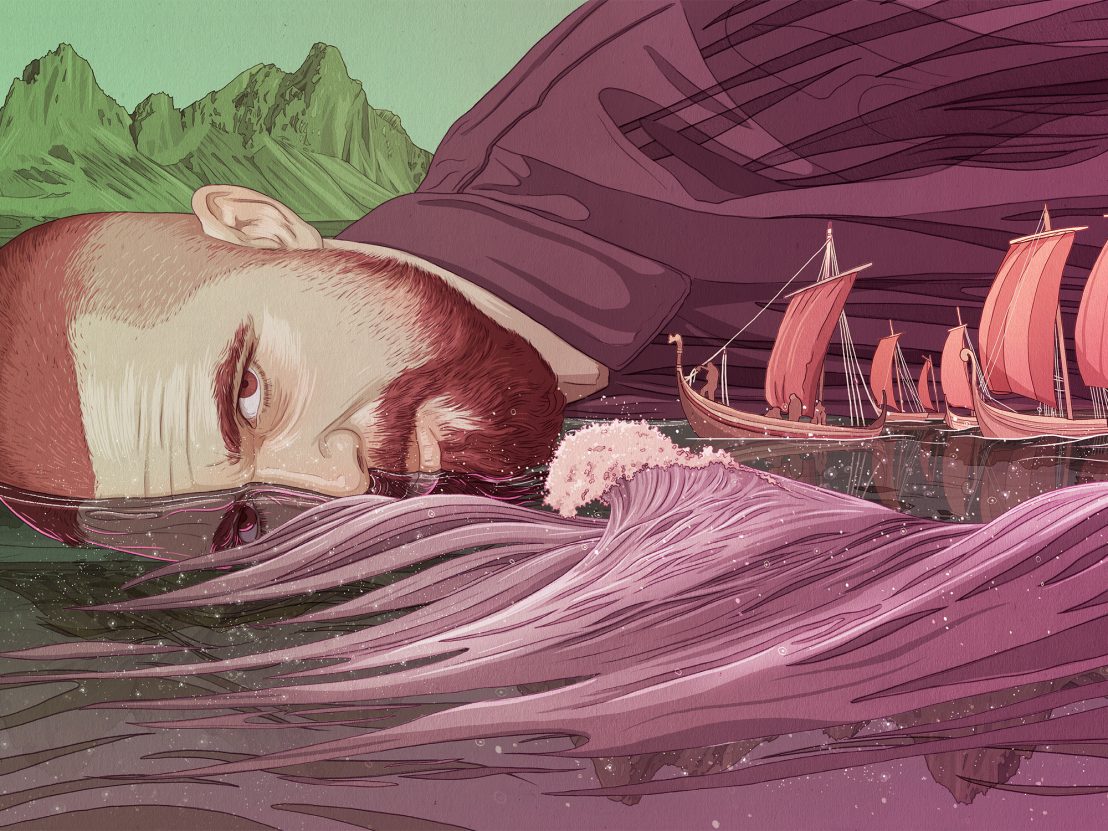
The visionary director of The Northman talks scaling up production, his love of Viking culture, and the perils of working with a flock of birds.
From a colonial-era New England village of 2015’s The Witch to a gusty coastal island in the 1890s as seen in 2019’s The Lighthouse, Robert Eggers is cinema’s chief excavator of the past. On his new film, The Northman, he goes farther than ever in space and time, travelling back to Iceland at the turn of the 10th century for a Viking fable of vengeance. Working with the highest budget of his career and a full stable of bona fide movie stars, this is his most ambitious undertaking yet — not that levelling up will keep him from indulging in his obsession with obscurity.
LWLies: What was the first thing you did to make The Northman?
Eggers: Several years ago, as Brooklyn hipsters were wont to do, my wife and I took a trip to Iceland. The landscapes completely blew me away. Having had no interest in the Viking Age before that, I suddenly had to make a Viking movie, and do it in Iceland. My wife was into the Old Norse sagas, and I started reading them as soon as I got home. A couple years later, I had a general meeting with Alexander Skarsgård, and he mentioned to me that he’d been trying to get a Viking movie made for a while with my friend Lars Knudsen, who produced The Witch. I told him, ‘I’ve got an idea for a Viking movie,’ which wasn’t completely true. So I went home, wrote a pitch, and the rest is history. Their history.
The other big piece of this is that, at a dinner party, I met the Icelandic novelist and poet Sjón. We got along, because we realised we shared a love of early-modern witchcraft while chatting at this party. I was completely blown away.
When you were first developing this knowledge base, what’d you learn that you didn’t know beforehand?
People seem to have this broad idea of the Viking, horned hats and whatnot. I was not particularly interested in Vikings, I just thought they were big and brutal and that was it. So to start understanding the richness and sophistication of their culture and literature, that was really inspiring. And their mythology, how cool is that? Evidently cool enough that Marvel Comics made a whole thing out of it. It was also clear that, because so many of these Viking epics are revenge stories, a good revenge movie always works. Even if you don’t personally believe in the idea of vengeance, you know it’ll be fun to watch.
The broader contours of this story come from ‘Hamlet’, and so many revenge stories end at the same moral about digging two graves. Did you set out to put your own inflection on these familiar narratives?
The morality of that is in the eye of the audience member more than the storyteller. But yeah, it is indeed based on the story of Amleth, which is the source material of Shakespeare’s ‘Hamlet’. But more than that, it’s a classic story that everyone knows on some level and can get behind.
I can indulge in the world-building and transport audiences in a more visceral way when I know I have the framework of a story that everyone’s able to access.
Did working with Sjón give you and the film a keener sense of the local colour in Iceland?
One hundred percent. There are plenty of Icelanders who don’t want to talk about Vikings at all, and will make that clear with a great many exclamation points. At the same time, every Icelander knows which character in these Viking stories they’re literally related to, directly. Having an incredible writer like Sjón, who’s so wedded to and embedded in this world and tradition of storytelling – I mean, that’s why we hired him! It’s his imaginary playground. These are his people.
Was he instrumental in getting Björk on board with the production and back in the world of film? It’s my understanding that they’ve known each other for a while.
Oh, yes. But it was actually Björk who introduced me to Sjón in the first place. Friend-of-a-friend situation. Because the two of them are close, and because we developed a friendly relationship, tied together by our composer and one of my closest friends [Tri Angle Records founder] Robin Carolan, there was an altogether familial atmosphere that I think she knew would make it fun to come in more than anything else.
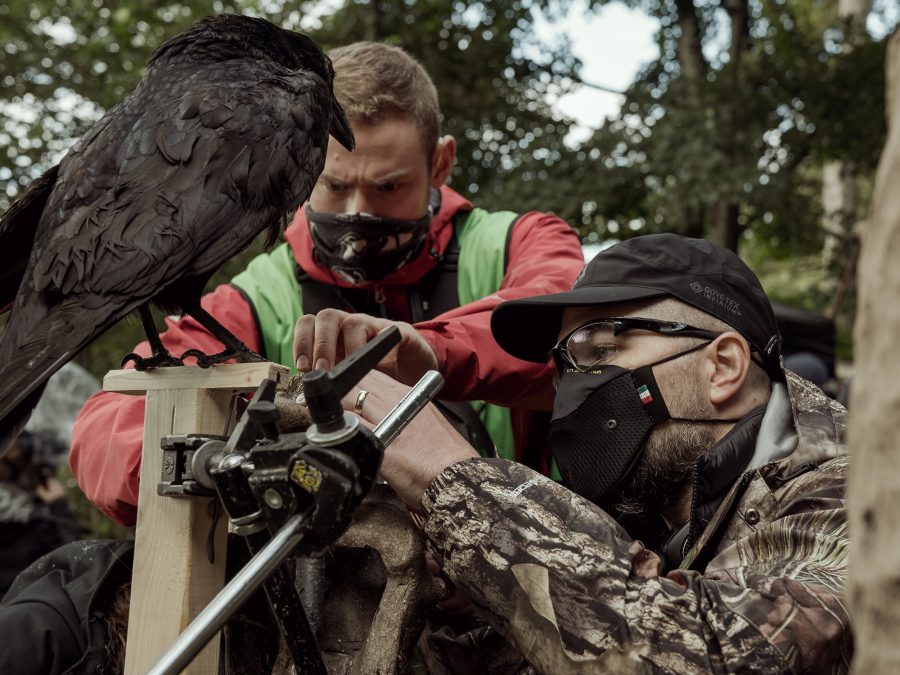
It looks like conditions on location in Iceland and Ireland were intense. How was this a departure from your past shoots, which were much more spatially contained?
Björk liked to say that Ireland was in drag as Iceland. [Laughs.] But yeah, the scope of this film is so much larger than anything I’ve done before, in every way possible. It’s an epic, by definition. I thought of it as making a movie like my others, except now I’m making what amounts to six of them at the same time. The wind on Cape Forchu, where we shot The Lighthouse, was unlike anything I’d ever experienced. But that pales in comparison to the wind on Mount Hekla, the volcano where we did a lot of shooting.
Were some aspects of a production this large and intricate alien to you?
At every level. I went from scouting on a borrowed lobster boat to scouting by helicopter. I had my same heads of department that I’ve always had – I like consistency in collaborators. It’s just that we were fortunate enough to be working with these incredible crews who have worked on Ridley Scott movies and Game of Thrones, and were able to help us actualise our visions.
When scaling up, the challenge is always to retain what makes your art personal and unique while you’re answerable to more people. Did you ever feel that tension about asserting your own creativity?
It was never an issue of me asserting my own creativity. It was just about making sure people listened to those assertions. But look, the collaboration with the studio was great, in the end. They supported our ambition to do an interesting Viking movie. We shot this epic single-camera, with single-take battle sequences. That’s uncommon.
What was it like to reunite with Anya Taylor-Joy, with so much having transpired for both of you since you made The Witch in 2015?
It was wonderful! We’d both gotten better at our respective jobs since The Witch. But the reason I stick with my collaborators, and particularly actors, is you’ve got to have a trusting relationship. And we already had that by the time we got started on this, so we could dig even deeper into the work more quickly. For [Willem] Dafoe, some of me and my cinematographer Jarin’s methods on The Lighthouse would frustrate him once in a while. He came to understand what we were doing and why, and on The Northman, he’d be like, ‘Ah, we’re doing this again.’ That recognition that you’re all on the same page, that’s a great feeling for everyone.
What were some unanticipated challenges to the process? Were there any problems you had to fix on the fly?
I knew enough to be aware that everything I planned on doing was a bad idea. [Laughs.] We had a small amount of boatwork in The Lighthouse, and it was an impossible headache. You can’t do a Viking movie without a lot of ships, and you could probably fit in more than we did, but I knew full well how difficult it would be. I learned that the tricky thing about shooting major action sequences is the background. Birds, those I’ve worked with before. I can handle birds. But this time, we had so many! It’s like I was just dealing with much bigger versions of all the same problems. There were days when I was like, ‘What the hell have I gotten myself into?’ Though you always have a few days like that. When Sjón and I had the idea, we were just standing in his kitchen. And now we’ve got to build a whole village.
You’ve shown an interest in lenses and the equipment of cinematography in the past – how would you describe the look and texture of this film, and how did you achieve that?
We’re shooting on film again, 35mm, but we’re going for a richer and cleaner finish than I’ve been after in the past. More colour, more contrast. As much as I love black-and-white, when you go to Iceland, you gotta shoot in colour to transport your audience to these incredible landscapes.
The only modern Viking movie that springs to mind is Valhalla Rising, did you draw on others?
There’s a lot of Conan referencing, I have to admit. Many tips of the hat. I’ve been told by my PR team to keep it light, but this is in some respects me trying to do Conan the Barbarian by way of Andrei Rublev. Just to be clear, the Russian medieval period movie is more in terms of the world-building discipline and not the storytelling itself.
Among some pockets of online fandom, your first two films have become synonymous with this movement in horror generally associated with the US indie studio A24 [who produced Ari Aster’s Hereditary and Midsommar]. Have you developed a new understanding of your own style as you’ve moved away from the genre and that studio?
It’s mainly in the world-building, and the insane notion of recreating the past. It’s impossible, especially for an era from 1,000 years ago, but it gives me and my collaborators a north star. We were lucky to be working with leaders in the field of Viking studies to advise on this. I’m sure historians will find plenty of things to pull apart, and in ten years, it’ll all be moot. But there’s never been a Viking movie as focused on accuracy as this one.
Do you have the mental space to think about your next movie right now? You’ve talked a lot about remaking FW Murnau’s silent classic Nosferatu – is that still on the cards?
Not too much to say on that front right now, aside from that I’ve spent so much time on Nosferatu, it would be very infuriating if it never happened.
Little White Lies is committed to championing great movies and the talented people who make them.
Published 12 Apr 2022
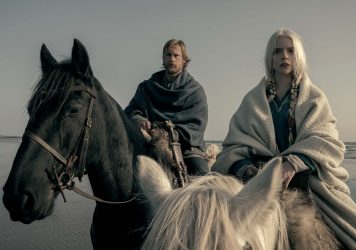
Robert Eggers assembles an intrepid team for the epic tale of a wronged Viking prince’s quest for vengeance.
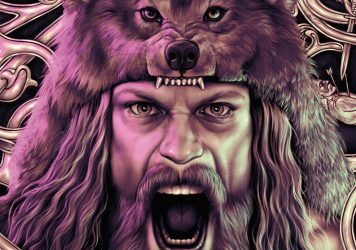
Join us on a longboat to Hell’s gateway with our new issue dedicated to Robert Eggers’ viking revenge saga, The Northman.
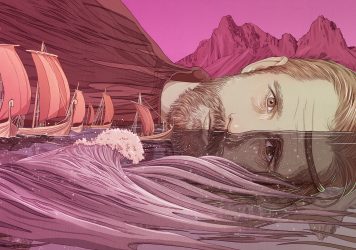
As he prepares to unleash hell in The Northman, we profile the Swedish actor who realises his lifelong dream with this Scandanavian epic.